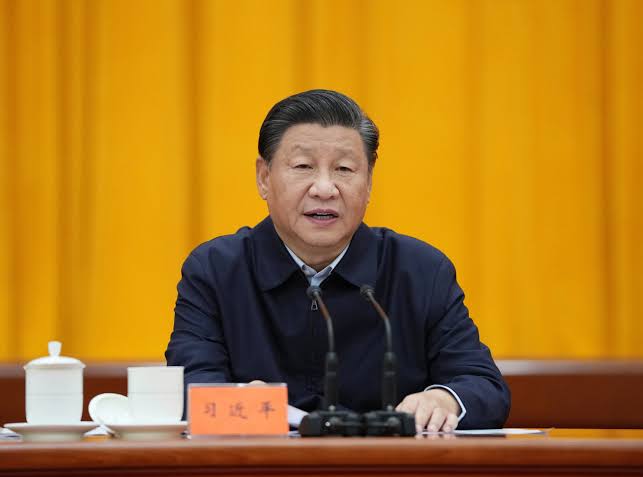The chapter titled “New Vision, Strategy, and Measures for Talent Development in the New Era” from Xi Jinping’s book “The Governance of China IV” outlines a visionary and comprehensive approach to building a talent-strong country. This commentary explores how Xi’s vision can be contextualized within Pakistan, a country with a significant youth demographic and untapped potential, and the broader Belt and Road Initiative (BRI) countries, emphasizing the importance of talent in driving sustainable development goals (SDGs).
Xi emphasizes the importance of the Party’s leadership in talent-related work as the foundation for developing a high-caliber workforce. In Pakistan, a similar approach can be adapted where leadership at both federal and provincial levels prioritizes youth development. Given that 68% of Pakistan’s population is under 30, the country stands on the cusp of a demographic dividend. Effective leadership can channel this youthful energy into constructive avenues, much like Xi’s vision for China. For BRI countries, strong governance structures can ensure that talent development initiatives are aligned with national and regional goals, fostering a cohesive strategy across diverse cultures and economies.
Xi identifies talent as the primary driver of innovation and a strategic asset in international competition. Pakistan, with its burgeoning youth population, has the potential to leverage this strategy. Programs that focus on skill development in fields such as IT, engineering, and sciences can transform the country’s economic landscape. Similarly, BRI countries, which collectively encompass a vast and diverse pool of human resources, can benefit from a coordinated effort to harness talent for innovation-driven development. For instance, collaborative initiatives like the China-Pakistan Economic Corridor (CPEC) can serve as platforms for talent exchange and capacity building, driving economic growth and technological advancement across the region.
Xi’s call to target global scientific and technological frontiers aligns well with the needs of BRI countries. China’s experience in advancing science and technology offers valuable lessons. BRI nations must support and encourage their scientists and engineers to keep abreast of global advances and produce first-class research outcomes. Initiatives like the China-BRI Talent Training Program can facilitate knowledge transfer and collaborative research, ensuring that technological advancements are shared and applied across participating countries. By fostering a culture of innovation and scientific inquiry, BRI nations can collectively enhance their competitiveness on the global stage.
The emphasis on well-rounded training and tapping into full potential is crucial. Pakistan must ensure that its educational institutions and vocational training centers are aligned with market needs. By fostering an environment that values practical skills and innovation, Pakistan can develop a workforce capable of driving the country forward. BRI countries, facing similar challenges, can adopt best practices from each other to create robust training programs. China’s emphasis on nurturing top-notch personnel and innovative teams can serve as a model. Collaborative educational initiatives, such as student exchange programs and joint research projects, can further enhance the capabilities of the youth across BRI nations.
Institutional barriers often hinder talent development. Xi’s emphasis on removing these barriers resonates strongly with Pakistan’s context. The country needs to reform its educational and employment systems to prioritize merit and innovation over bureaucratic constraints. Simplifying procedures and providing clear career pathways can help retain talent and prevent brain drain. BRI countries, too, must undertake similar reforms to create a more conducive environment for talent development. The harmonization of policies and standards across the BRI can facilitate smoother collaboration and mobility of talent, fostering an integrated approach to regional development.
An enabling environment that respects and values talent is essential for sustained development. Pakistan must work towards creating social, institutional, and living environments that support and nurture talent. Ensuring fairness and equality, providing satisfactory support, and cultivating a culture of respect and innovation are critical. By celebrating achievements and providing tangible benefits, Pakistan can encourage its youth to fully engage in nation-building efforts. BRI countries should similarly strive to create the best conditions possible for talent to thrive. This includes ensuring access to quality education, healthcare, and other essential services that enable individuals to reach their full potential.
Xi’s call to promote the ethos of scientists—patriotism, innovation, truth-seeking, dedication, and teamwork—is particularly relevant. Pakistan should champion similar values to inspire its youth. By highlighting the contributions of scientists and innovators, the country can create role models for young people. Initiatives like science fairs, innovation competitions, and public recognition of achievements can help in this regard. Encouraging seasoned professionals to mentor and guide young talent can also foster a culture of continuous learning and excellence. BRI countries can collectively promote these values, fostering a regional culture that prioritizes scientific inquiry and innovation.
The alignment of talent development with the Sustainable Development Goals (SDGs) is crucial for long-term global progress. Xi’s vision for a talent-strong country inherently supports several SDGs, including quality education (SDG 4), decent work and economic growth (SDG 8), industry, innovation, and infrastructure (SDG 9), and reduced inequalities (SDG 10). BRI countries, through collaborative efforts, can harness talent to achieve these goals. For instance, by investing in education and vocational training, these nations can improve economic prospects and reduce poverty. By fostering innovation, they can drive sustainable industrial growth and infrastructure development, ensuring a better quality of life for their populations.
Xi Jinping’s chapter provides a strategic framework for talent development that Pakistan and BRI countries can adapt to their unique contexts. With a significant portion of their populations being youth, these nations have a tremendous opportunity to harness this demographic advantage for national and regional development. By adopting a holistic approach that includes strong leadership, strategic focus, comprehensive training, institutional reform, global engagement, an enabling environment, and the promotion of scientific ethos, these countries can cultivate a generation of talented individuals capable of driving sustainable growth and innovation.

Mr. Qaiser Nawab, a global peace activist, is a distinguished international expert specializing in the Belt and Road Initiative (BRI), Afghanistan, Central Asia and founder of the Belt and Road Initiative for Sustainable Development (BRISD), a newly established global think-tank headquartered in Islamabad, in conjunction with the one-decade celebration of BRI.


